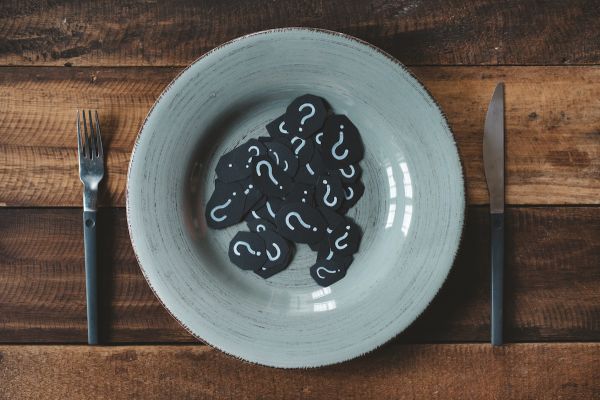Answering your questions about meal timing and frequency
It seems that someone is promoting a new diet or different eating style everywhere you turn, and one topic we see discussed often is the question of how many times per day we should eat meals and when we should eat them. Let’s take a look at some of these questions.
How many times per day should I eat?
These days, we do tend to eat more frequently throughout the day than in the past. Is this having an effect on our health? Some studies show that this pattern of eating may be more healthful than eating a larger amount once or twice during the day. However, the best eating pattern for you may be different than someone else’s based on your individual needs. Consider your schedule, hunger, nutrient needs and health conditions. For example, someone undergoing cancer treatment might find it easier to tolerate smaller, more frequent meals throughout the day. Someone with diabetes may need to pay much greater attention to meal timing than folks without diabetes. For people without other health concerns, there is not significant evidence to show that the frequency of meals has any substantial impact on a variety of health markers.
It’s also important to consider how much and what you eat rather than how often you eat. For example, someone who eats once or twice per day might eat the same total amount as someone who eats six or seven times per day — or much more or much less. Plan your meals and snacks to manage your hunger and give you energy throughout your day and aim for foods like fruits, vegetables, whole grains, legumes, nuts, seeds, seafood and lean meats.
Should I stop eating at a certain time of day?
You might hear that we should stop eating after a specific time in the evening such as 6 p.m., or that late-night eating is inherently bad for your health. On the other hand, some cultures traditionally don’t eat dinner until 9 or 10 pm. Overall, there is no specific time that you are supposed to eat or to stop eating.
Late-night eating, such as snacking while watching TV, can sometimes be an unhealthy habit as it may often include higher-calorie foods without much nutritional value. If you are eating out of boredom or other non-hunger related reasons, consider switching up your evening routine or bringing a portioned snack with you rather than a whole bag or bowl.
For sleep quality, it can be ideal to stop eating a few hours before bed. This can help your body digest food and avoid heartburn or indigestion. However, going to bed on an empty stomach could also keep you up at night, so be sure that you are eating enough throughout the day. Plan a healthy after-dinner snack if you are typically still hungry in the evening. For help falling and staying asleep, it’s also best to avoid caffeine and alcohol in the evening as well as foods or drinks that are sugary, spicy or high in fat.
Have more questions?
Our nutrition team can play an important role in your care — before, during and after treatment.
Learn MoreWhat about intermittent fasting?
Intermittent fasting is a diet that has been popular over the past several years and involves cycling between periods of fasting and periods of eating. There are many variations of this diet that provide different suggestions for how long the periods of fasting and eating should be. Limited, early research suggests that some types of intermittent fasting might have potential benefits for your metabolism. However, this diet can cause health problems if you overeat or binge during eating periods, or if you don’t get enough nutrition and lack energy during times of fasting.
This type of eating pattern does not specify the types of foods you should eat or avoid. If you eat mostly fruits, veggies, whole grains, nuts and seeds, it could be a very healthful way to eat — but it could be unhealthful if you fill up on foods that are high in added sugars and saturated fats.



